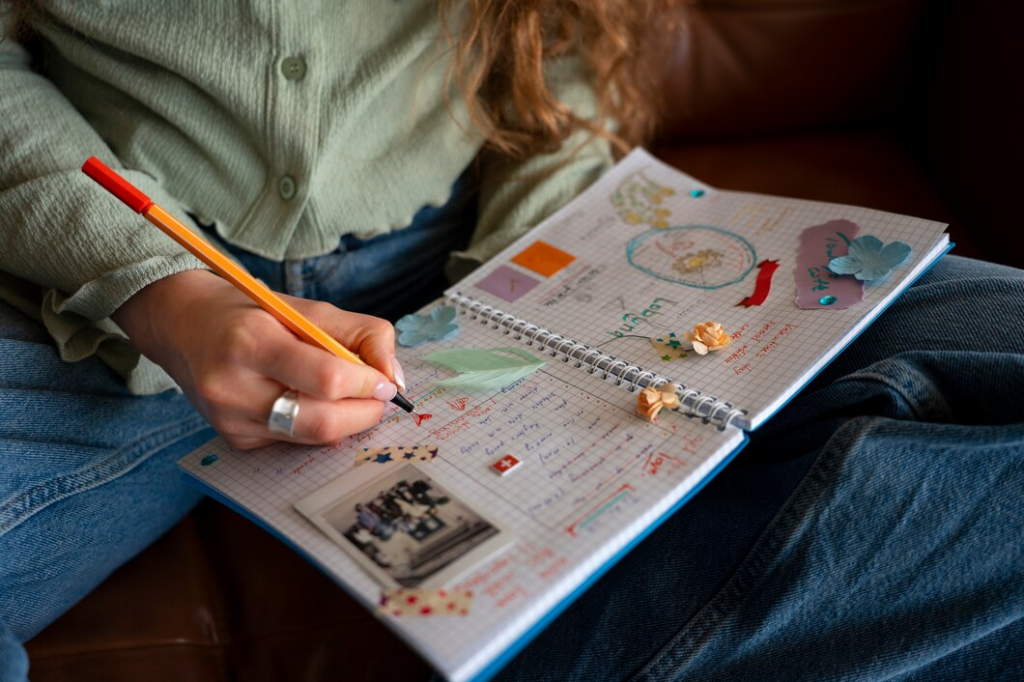Gratitude is more than a polite gesture—it’s a mindset that can reshape how you experience life. At its heart, gratitude is a conscious decision to focus on the good, savor small moments, and find positives even in tough times. Research shows that practicing gratitude enhances well-being, boosting mental health, enriching relationships, and sparking creativity. But what makes this shift in perspective so powerful? Let’s explore how focusing on your blessings can lead to profound changes, making each day feel brighter and more meaningful.
Gratitude has also been linked to better health outcomes, like reduced stress, improved mood, and greater resilience. It helps you turn everyday moments into opportunities for growth, promoting inner peace and emotional strength. By shifting your mindset, gratitude equips you to handle life’s ups and downs with greater ease.

Gratitude and Its Impact on Mental Health
Gratitude goes beyond being a pleasant feeling—it’s a powerful tool for enhancing mental well-being. Studies show that regularly practicing gratitude can lower stress, reduce symptoms of anxiety and depression, and promote a more positive outlook on life. Keeping a gratitude journal, for instance, has helped participants feel happier and less overwhelmed by daily stresses. By focusing on what they’re thankful for, individuals shift their mindset from negativity to positivity, proving that a grateful heart can improve emotional health.
Moreover, gratitude aids in emotional regulation. By consciously counting your blessings, you’re training your mind to focus on positive experiences, leading to greater emotional stability. This shift helps you navigate challenges with more balance and calm. Research even suggests that gratitude builds resilience, acting as a buffer during tough times, allowing you to face adversity with more strength.
On a physiological level, practicing gratitude activates brain regions associated with pleasure and reward, releasing feel-good chemicals like dopamine and serotonin. This process not only lifts your mood but also reinforces a cycle of positivity, helping you see the brighter side of life and promoting overall well-being.
Strengthening Relationships Through Gratitude
Expressing appreciation strengthens relationships by fostering a deeper sense of connection and trust. When you take a moment to genuinely thank someone—whether it’s a friend, family member, or colleague—it brings people closer. Research shows that regular acts of gratitude can make others feel valued, leading to more support and kindness exchanged in return. This creates a positive cycle that helps solidify bonds over time.
During conflicts, gratitude offers a fresh perspective. Instead of focusing on frustrations or disagreements, it encourages you to recognize the positive aspects in others, even in difficult moments. This mindset makes resolving issues easier and promotes understanding. Studies also suggest that people who practice appreciation are more likely to forgive, which leads to healthier, longer-lasting relationships.
In broader communities, acknowledging others creates a sense of belonging and support. When you express thanks, it contributes to a more positive atmosphere and encourages those around you to do the same. Whether at home, work, or within your social circle, this practice fosters meaningful connections and a sense of unity.
The Spiritual Dimension of Gratitude
Gratitude isn’t just about mental and emotional benefits—it can also be a deeply spiritual practice that fosters a sense of peace and purpose. Many people find that when they pause to appreciate the blessings in their lives, they feel a stronger connection to something greater than themselves. Whether it’s nature, a higher power, or the universe, this connection provides comfort and guidance during difficult times. Moments of gratitude, like admiring a sunset or experiencing an unexpected kindness, remind us that we’re supported, even when life gets tough.
This spiritual aspect of gratitude isn’t tied to any one religion or belief system. It’s more of a universal practice that helps cultivate humility and awareness. As author Alice Walker once said, “‘Thank you’ is the best prayer that anyone could say.” Expressing thanks, whether in quiet reflection or through prayer, allows you to acknowledge the interconnectedness of life and find meaning in every experience—good or bad.
Incorporating gratitude into daily spiritual practices, like meditation or reflection, can help you stay centered and aligned with your values. It opens up space for more blessings to flow into your life, creating a cycle of abundance and growth. In this way, gratitude not only makes you feel good in the moment but also leads to a more fulfilling and spiritually enriched life.
Enhancing Creativity and Problem-Solving Abilities
A grateful mindset doesn’t just improve your mood—it can also unlock creativity and sharpen your problem-solving skills. When you focus on the positives, it shifts your thinking, allowing you to approach challenges from fresh angles. Instead of being bogged down by obstacles, you start to see new possibilities and solutions. Research has found that people who practice gratitude regularly are better at thinking outside the box because they’re more open to different ideas.
Gratitude also helps with focus and memory. By appreciating the good moments in your life, you naturally train your mind to stay more present, which can boost concentration. This presence of mind allows you to make better decisions without being clouded by negativity or stress.
What’s more, when you feel thankful, it sparks curiosity and a desire to explore new paths. This optimism makes it easier to take risks and try different approaches, leading to more creative solutions. Whether you’re brainstorming ideas or working through a challenge, gratitude keeps your mind open to possibilities you might have missed otherwise.
Practical Tips for Cultivating Gratitude

You don’t need to make big changes to bring more gratitude into your life. Here are some simple ideas that can help you get started:
- Write It Down
Try keeping a small notebook where you can write a few things you’re grateful for each day. It could be something as simple as a nice meal or a helpful conversation. Putting your thoughts on paper makes it easier to notice the good moments. - Begin Your Morning with Gratitude
Before diving into your day, take a minute to think about three things you appreciate. It could be anything—from your health to something exciting planned for later. This small habit can put you in a positive mindset for the rest of the day. - Say Thank You
Whether it’s sending a quick message or thanking someone in person, expressing gratitude can strengthen your relationships. It’s a simple act, but it can make a big difference in how others feel. - Pay Attention to the Small Stuff
Throughout your day, notice the little things that bring you joy—a quiet moment, a good laugh, or even a hot drink on a cold day. Being mindful of these details can help you stay grounded in the present. - Reframe Tough Moments
When something doesn’t go as planned, try looking for what you can learn from the situation. It’s not about ignoring the hard parts but recognizing how challenges can help you grow. - Start a Gratitude Jar
Set up a jar where you and your family or friends can drop in notes about things you’re grateful for. Over time, the jar will fill with positive reflections, serving as a reminder of the good around you. - Include Gratitude in Your Meditation
During your meditation or quiet time, take a moment to reflect on the things you’re thankful for. This helps you stay mindful and connected to the present moment.
These small actions can make a big difference over time. By practicing gratitude regularly, you’ll notice a shift in how you see the world and handle everyday challenges.
Embracing Gratitude for a Healthier, Happier Life
Gratitude isn’t just about saying “thank you.” It’s a way of looking at life that can change how you feel every day. By noticing the good things, no matter how small, you can improve your mood, connect better with others, and feel healthier overall. The great thing about gratitude is that it doesn’t require big efforts. It’s found in the small moments—like enjoying a peaceful walk, appreciating someone’s kindness, or taking a deep breath at the end of a long day.
When you focus on the positives, challenges don’t seem as overwhelming. You might even find it easier to handle stress and setbacks. Little by little, practicing gratitude can shift your mindset, helping you see life’s brighter side more often.
Start small today. Think of one or two things you’re thankful for, send a message of appreciation to someone, or take a moment to pause and enjoy the present. These simple actions can make a real difference over time, helping you live a happier, more fulfilled life.



